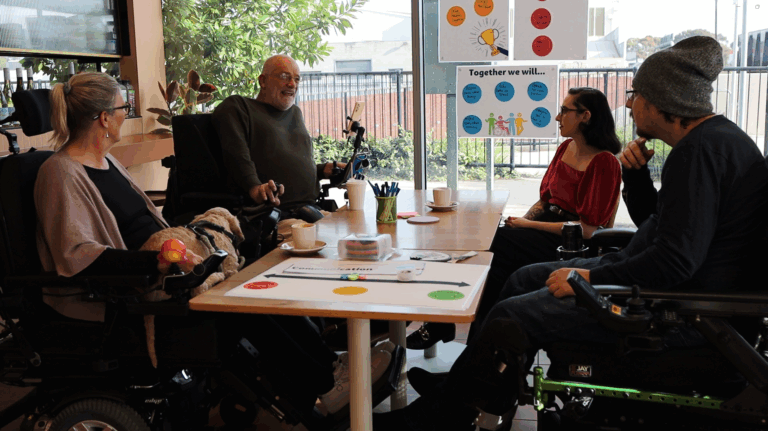This will be the first of a series of communications that will speak to our Pilot Project and address key areas from our recent evaluation report.
Too often, NDIS participants have limited control over where they live, who they live with and how their support is delivered. At Enliven Housing, we recognised the need for a new approach and developed Enliven Community – a first-of-its-kind facilitation model designed to place people at the centre of their own lives.
Key to the Enliven Community model is a Facilitator who coordinates and communicates Participants directions to the housing and support providers they have engaged. Enliven Community trialled the use of facilitators to coordinate group meetings in four Enliven Housing sites and four shared supported living sites run by other housing providers across Australia.
Key insights from our recent evaluation:
- Innovation with impact: One of the few recent innovations in housing and support — and the only model to embed Facilitators in this way.
- Empowerment over direction: Participants felt empowered to lead the decision-making: “It was all still our ideas.”
- Whole network approach: Involving both formal and informal supports improved communication and continuity.
- Flexibility matters: Facilitators adapted to groups who preferred individual meetings over group sessions.
- Relationships first: Building trust early helped maintain engagement across the collective.
- Skilled facilitation is essential: Independent, experienced Facilitators were key to managing group dynamics and ensuring balanced participation.
One of the most powerful outcomes? People no longer felt they had to wait for a provider to “fix” things —they felt empowered to lead the solution.
Why do we need Facilitators?
The evaluation confirmed what we’ve seen in practice – skilled, impartial Facilitators are central to the success of Collective meetings.
Effective facilitation means:
- Navigating complex group dynamics with neutrality
- Keeping discussions focused and outcomes clear
- Supporting people to take ownership of actions and follow-ups
- Creating a safe, comfortable space with consistency in Facilitator presence and approach
- Tailoring meeting content to meet everyone’s needs, preferences and lived experience
What’s next?
We’re using the findings from this evaluation to:
- Strengthen the facilitator role and training
- Tailor our approach across different types of collectives
- Share our learnings with the broader sector
- Continue adapting based on what people tell us works
We’re proud to be leading in this space and grateful to the participants, families and providers who contributed to this work. Everyone deserves to live in a home where their voice shapes their support – and we’re committed to making that a reality.
